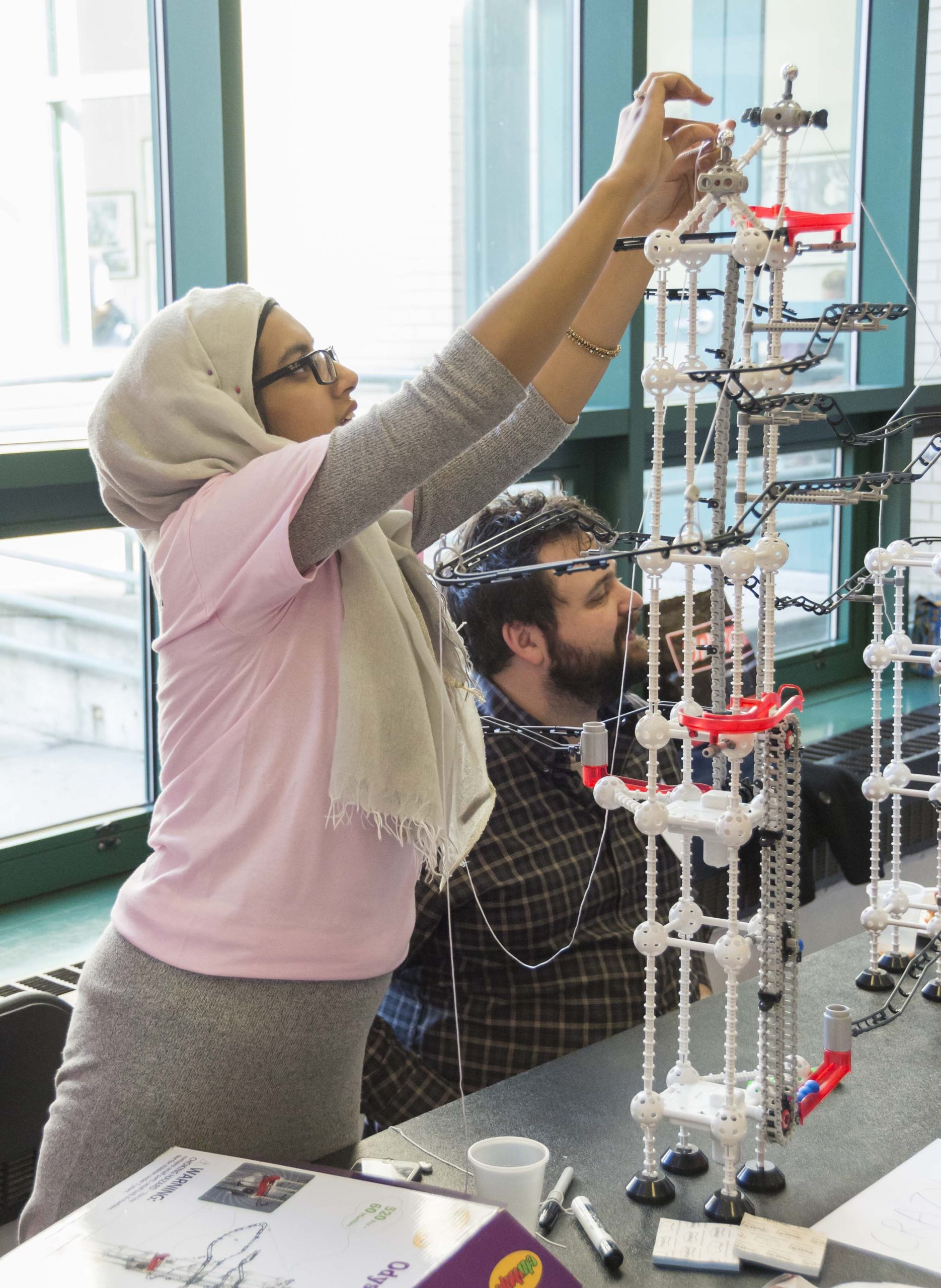19 Introduction to Engineering

Engineering is a diverse discipline that applies physics, chemistry, biology, and mathematical principles to design and construct practical solutions. Engineers use their knowledge of these solutions and their practical applications to solve real-world problems. Engineering as a discipline encompasses many specialized fields from which to choose, each with its own emphasis on particular areas of applied mathematics, applied science, and types of application.
Main Programs and tracks within discipline
The Engineering Science program offers a broad range of courses which fall under four (4) AS Engineering Science degree tracks. Students can choose a major from the following options:
- Civil Engineering
- Mechanical Engineering
- Electrical Engineering
- Earth System Science & Environmental Engineering
Details for each of the tracks are included on the Math, Engineering, and Computer Science website.
Approaches to inquiry, research and problem-solving
Engineering encourages students to develop creative approaches and solutions to often open-ended problems through critical thinking and problem-solving methodologies. Problem-solving in engineering is often iterative and may require multiple cycles of steps to arrive at a viable solution. These steps typically include:
- Defining the problem: Identify and define the problem that needs to be solved.
- Research: Collect data, facts, and figures that are relevant to the problem.
- Idea germination: Create possible ideas on solutions to the problem.
- Consider alternatives: Compare and evaluate different hypotheses and solutions.
- Optimal solution design: Select the best solution based on the evaluation of alternatives.
- Implementation: Develop and implement a plan of action to solve the problem.
- Testing and prototyping: Evaluate the effectiveness of the solution and make necessary adjustments.
- Documentation: Final report
Students in the Engineering Science Program will be exposed to many design-related projects throughout the program.
THREE TOP CAREERS FROM THE BUREAU OF LABOR STATISTICS, WITH SALARY
These salaries are averages and can vary depending on many factors.
- Software engineering: Software engineers design and develop software applications and systems for a variety of industries. The average salary for a software engineer is $107,510 per year
- Petroleum engineering: Petroleum engineers design and develop methods for extracting oil and gas from the earth’s surface. The average salary for a petroleum engineer is $137,720 per year
- Electrical engineering: Electrical engineers design and develop electrical systems, including power generation and transmission, communications, and control systems. The average salary for an electrical engineer is $103,390 per year.
